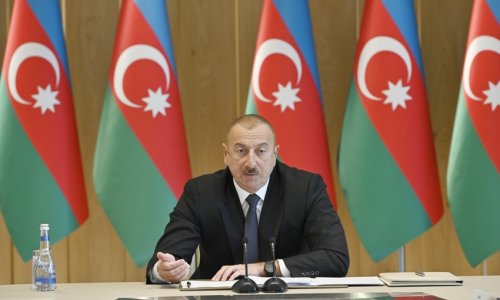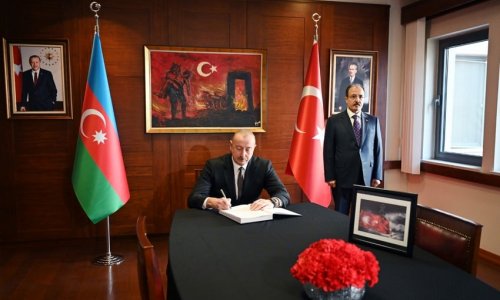By JACOB KAMARAS
In abstaining from the vote on the recently passed United Nations Security Council (UNSC) resolution that condemned Israel’s settlement policy, the departing Obama administration at best took a "neutral” stance on a U.N. measure targeting a stalwart American ally, and at worst betrayed that ally under the guise of neutrality.
President Barack Obama, Secretary of State John Kerry, and Ambassador to the U.N. Samantha Power might have believed a U.S. abstention would be perceived as a softer blow to Israel than voting in favor of UNSC Resolution 2334, which demands that Israel "immediately and completely cease all settlement activities” and underscores the U.N. stance that eastern Jerusalem as well as other territories acquired by Israel in the 1967 Six-Day War are "occupied territory” — including the Western Wall and the Temple Mount, Judaism’s holiest sites.
On a practical level, abstaining from the vote was tantamount to voting in favor of the resolution, since the U.S. could have used its veto power in the Security Council to nix the measure entirely — as had been American policy for decades on one-sided U.N. proposals targeting Israel. But let’s be generous for a moment. Let’s assume the administration was in fact being "neutral” by abstaining. Even so, this decision represents a misguided foreign policy strategy that has characterized the Obama years: taking a cold and dispassionate approach to relationships with U.S. allies who should be cherished.
Other than Israel, a nation that typifies this foreign policy conundrum is Azerbaijan, the Eurasian former Soviet republic whose profile is about as common as a unicorn: a moderate Muslim-majority nation with a proud history of accepting other faiths.
While the Obama administration has consistently condemned Israeli settlement construction during the last eight years, the administration has failed to take a stand against the illegal Armenian settlements in the Nagorno-Karabakh region of western Azerbaijan. The Nagorno-Karabakh conflict began in the late 1980s and later escalated into a full-fledged war. More than 30,000 people were killed before a cease-fire in 1994, leaving more than 20 percent of Azerbaijan’s internationally recognized territory occupied by Armenia.
Most recently, Secretary Kerry angered Azerbaijan in October when he claimed both Armenia and Azerbaijan "aren’t ready” to resolve the Nagorno-Karabakh conflict. Azerbaijan’s President Ilham Aliyev responded that blaming both sides for the conflict amounts to "showing overt support for Armenia’s policy of occupation.”
Aliyev’s sentiment echoes much of the Jewish frustration with President Obama, whose administration has similarly been prone to blaming "both sides” for the impasse in the Israeli-Palestinian conflict rather than unabashedly standing by Israel, America’s top Mideast ally.
When President-elect Donald Trump assumes office Jan. 20, rather than taking his cue from current U.S. policy, he would well-served taking a page from Israel’s playbook in crafting his policy toward Azerbaijan.
Azerbaijan and Israel
Israeli Prime Minister Benjamin Netanyahu visited Azerbaijan last month, praising the Muslim-majority nation’s warmth toward its 30,000-person Jewish community as "something that we can show the world.”
During Netanyahu’s trip, President Aliyev revealed that over time, Azerbaijan has purchased close to $5 billion in defense equipment from Israel. But Netanyahu did not visit Azerbaijan as an arms dealer. He came to deepen an already expansive bilateral relationship that has existed on an official level since 1992. Israeli leaders’ previous landmark visits to Azerbaijan included trips by Defense Minister Moshe Ya’alon in 2014, Foreign Minister Avigdor Lieberman in 2012, President Shimon Peres in 2009 and Netanyahu in 1996.
Israel and Azerbaijan have mutual concerns about Iran, which shares a border with Azerbaijan and has backed Armenia in the Nagorno-Karabakh conflict. For Israel — given its priority to combat the Iranian nuclear threat, an issue the Jewish state considers existential in nature due to Iran’s repeated vows to annihilate Israel — Azerbaijan is a crucial ally in the Iranians’ backyard.
Azerbaijan and Israel also have a thriving economic relationship. Israeli companies infuse their technological expertise into the Azerbaijani tech, agriculture, and various other markets, including the telecommunications firm Bezeq, which operates phone service throughout much of Azerbaijan. Azerbaijan, meanwhile, is Israel’s largest oil supplier.
Azerbaijan and its Jews
Azerbaijan’s Jewish community consists of the so-called "Mountain Jews” — who have lived in the area since the 5th century AD. There are also Ashkenazi Jews, mostly living in Baku, who fled Tsarist pogroms to settle in safety in a Muslim-majority nation.
Anti-Semitism has not historically been a problem in Azerbaijan, and that remains the case today, with local Jews reporting that their presence is not merely tolerated, but celebrated.
Azerbaijan and America
What should America learn from the Israeli-Azerbaijani relationship?
While Obama has offended U.S. allies like Israel and Azerbaijan with a policy of fierce neutrality, Trump can work to restore those relationships to the unwavering level they deserve. Trump is already a frequent critic of the Obama-brokered Iran nuclear deal, which is a security concern shared by Israel and Azerbaijan.
On a deeper level, Trump should understand that being pro-Israel also means supporting Azerbaijan, a rare Muslim-majority ally for Israel in a world fraught with Islamic adversaries of the Jewish state. Further, as he navigates his policy in the chaotic and complex Muslim world, the president-elect should fully embrace and learn from America’s own relationship with Azerbaijan, a genuinely moderate Muslim-majority nation.
With a proper understanding of the benefits of deep ties with Azerbaijan, Trump can take at least one step toward returning America to a foreign policy of leadership — not leading from behind. To rebuild the free world’s trust in the U.S., Trump must start by rebuilding trust with important allies such as Israel and Azerbaijan.
spectator.org/using-israel-as-a-model-trump-can-make-american-azerbaijani-ties-great-again/
www.ann.az
Follow us !











